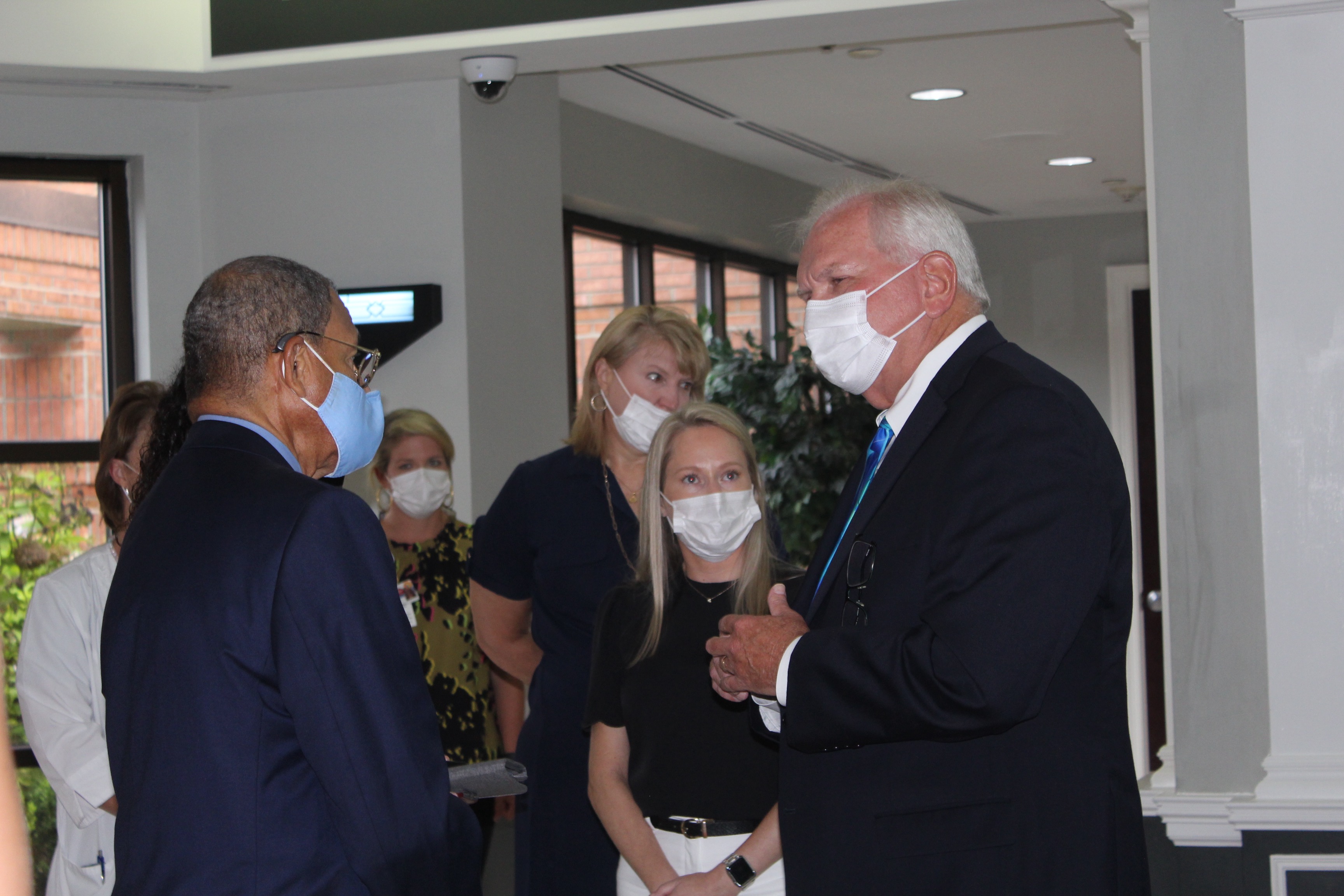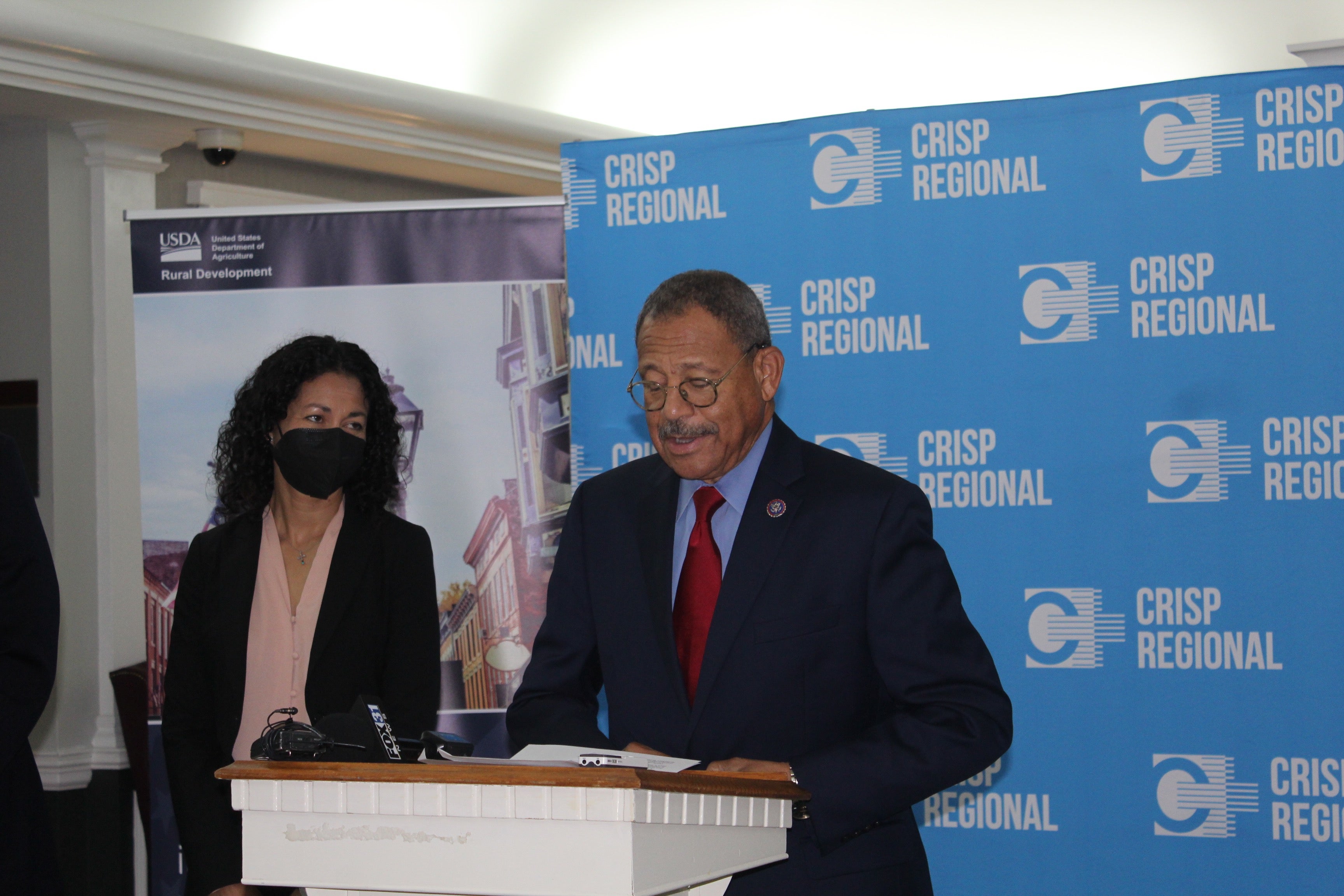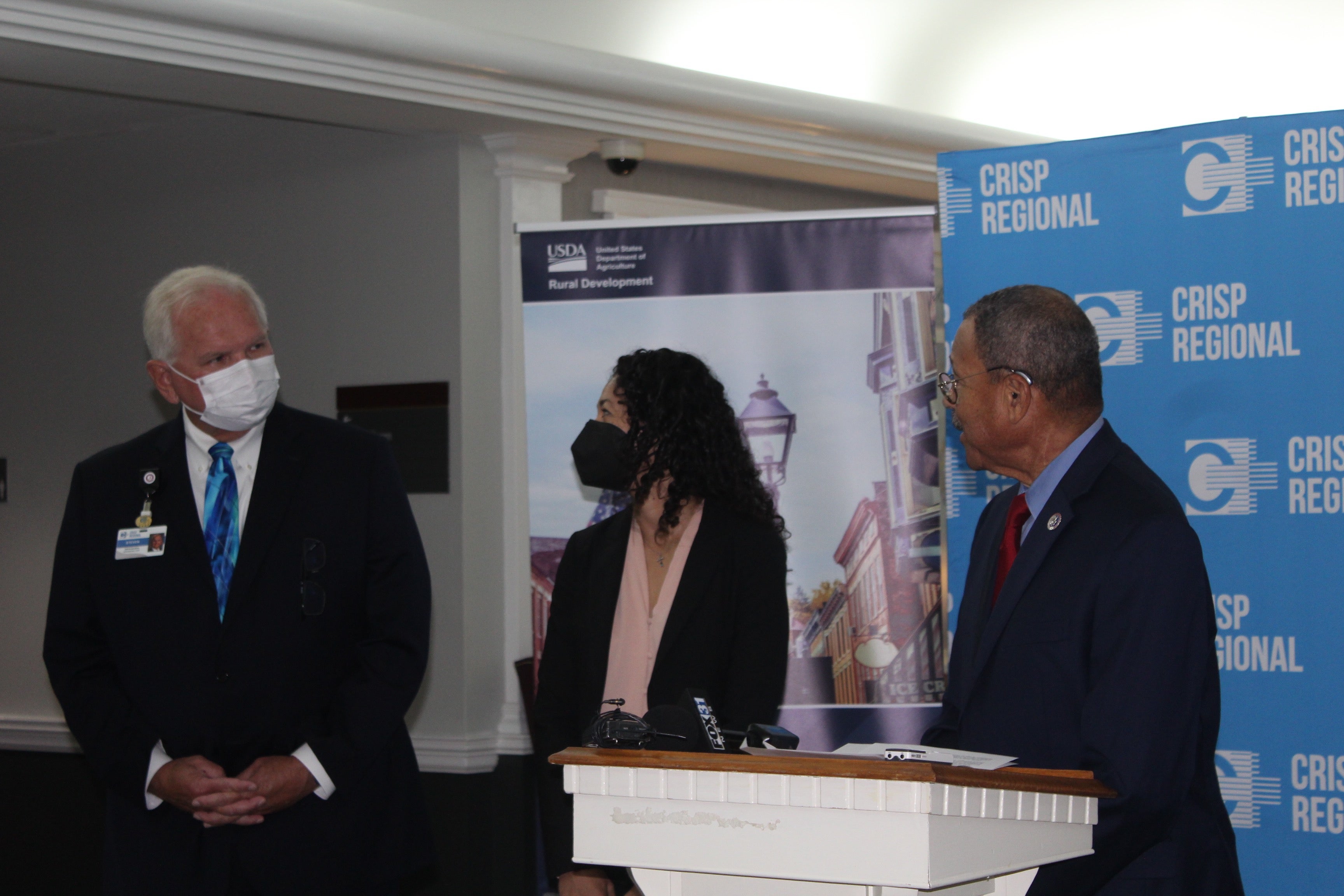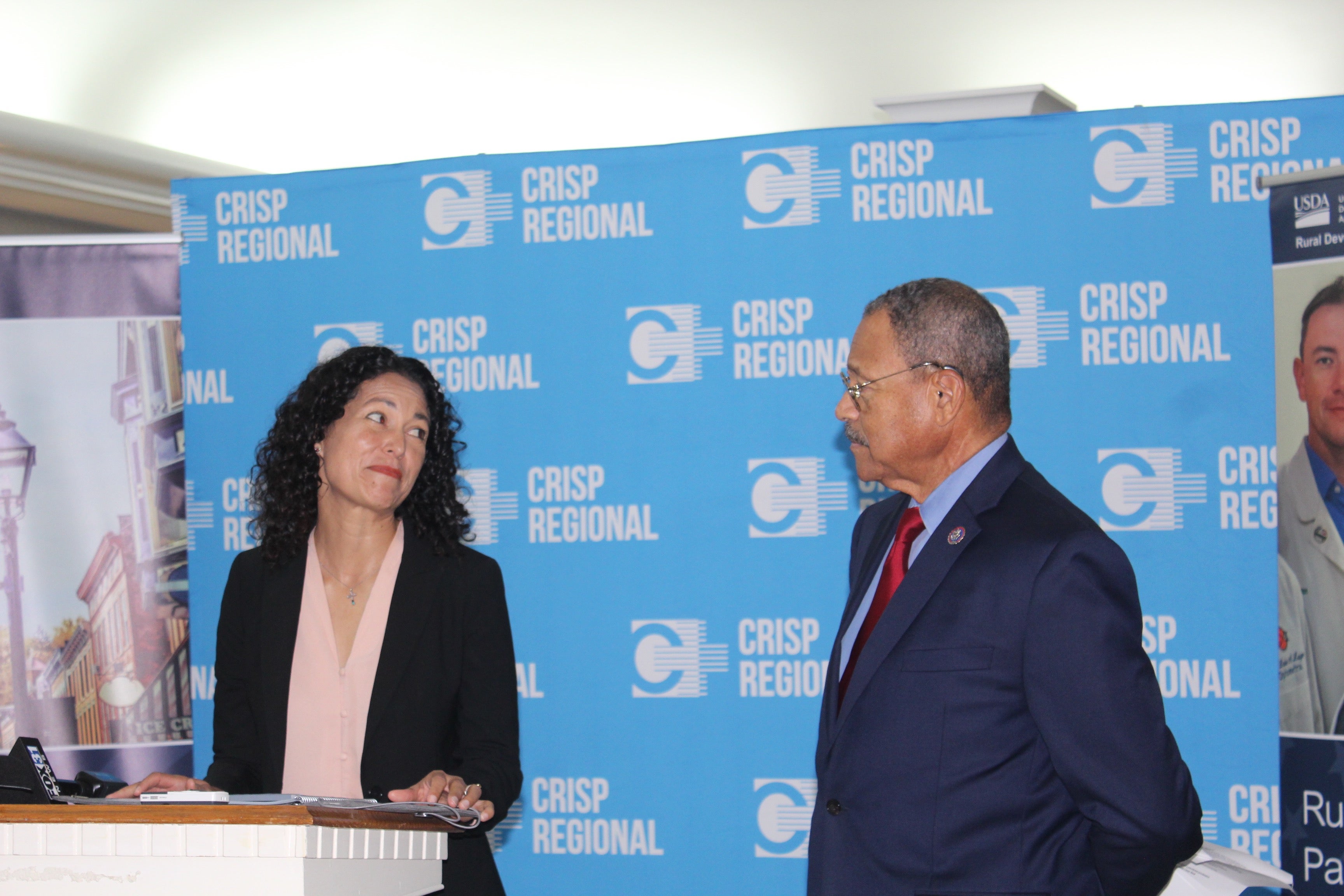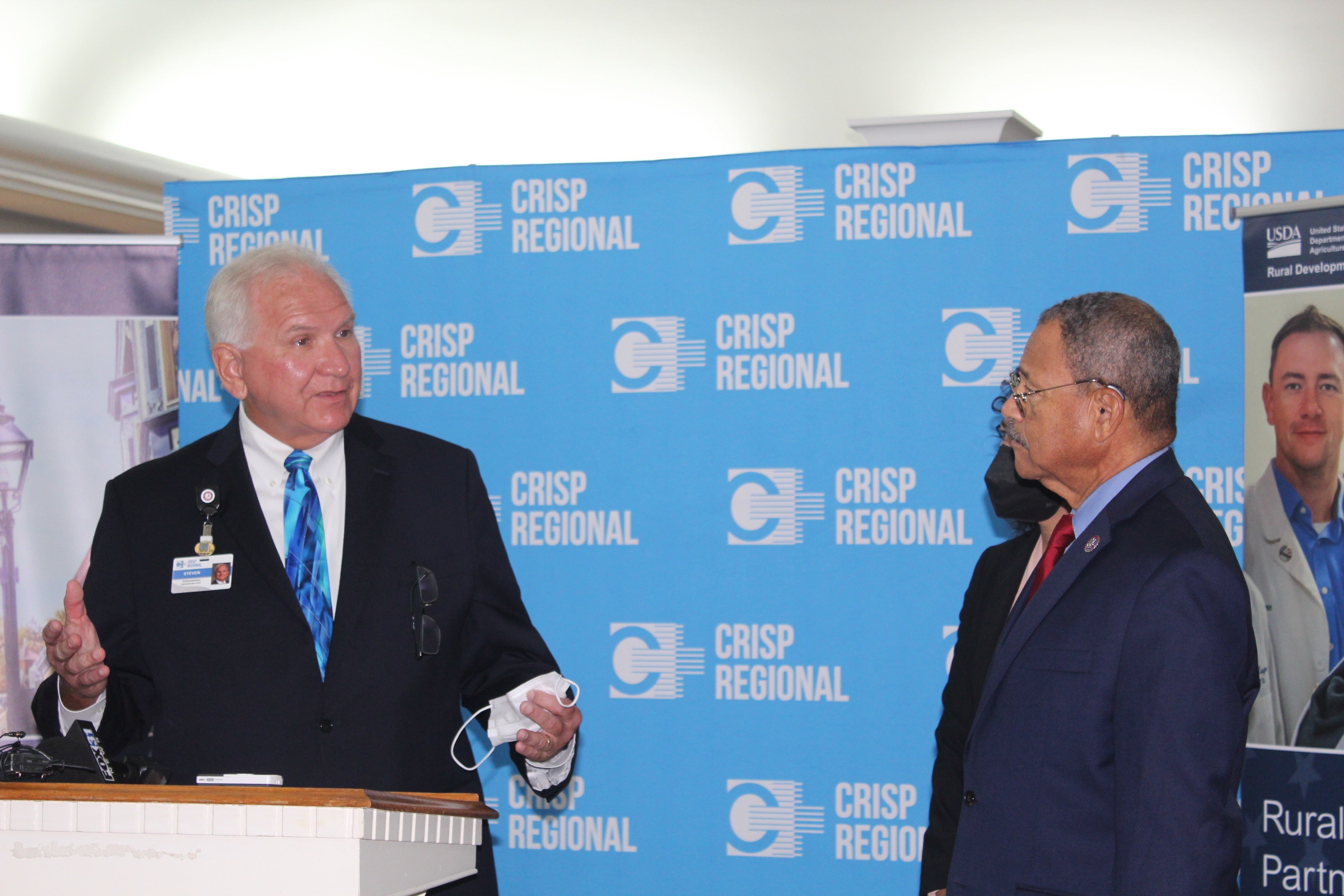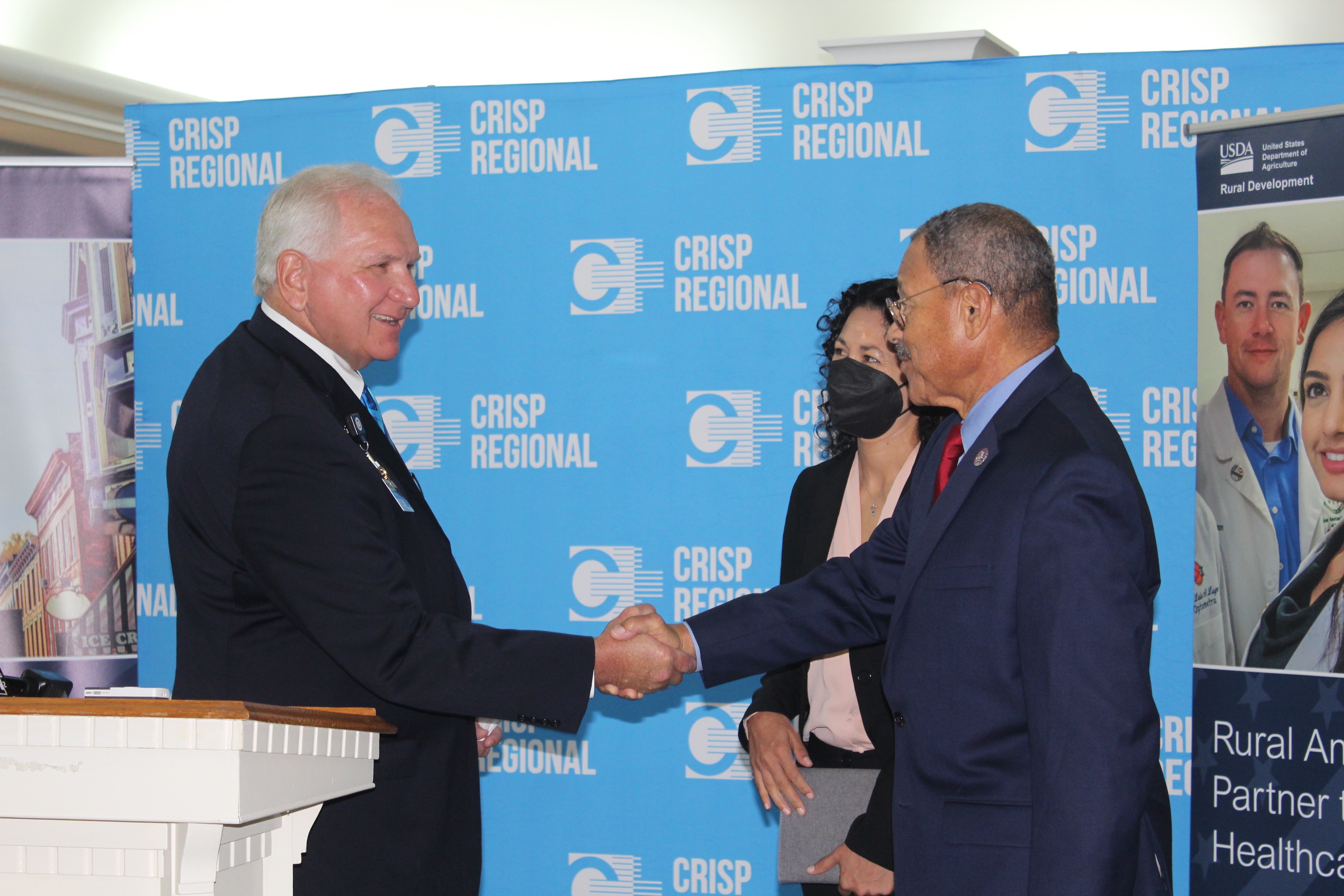USDA awards $1 million to Crisp Regional Hospital
Published 9:28 am Friday, August 12, 2022
|
Getting your Trinity Audio player ready...
|
by Kerri Klatt, Managing Editor
The U.S. Department of Agriculture, USDA of Rural Development is awarding $4.5 million in grants to improve and expand access of health care as well as improve health care facilities in rural Georgia. The awards being announced in Georgia are part of a nationwide announcement of $74 million to help 143 rural health care organizations expand critical services for 3 million people in 37 states. Congressman Sanford Bishop, Jr., who represents middle and southwest Georgia, made the announcement at Crisp Regional Hospital on Thursday, August 11, 2022 that the Crisp Regional Hospital will receive a $1 million grant to recover lost revenue. “Having access to healthcare close to home is a major quality of life issue and is a great challenge to our rural communities, this was the case even before the COVID-19 pandemic, which hit us hard here in southwest Georgia,” said Congressman Bishop, “but it put an enormous strain on our healthcare system.”
Xochitl Torres Small, Under Secretary for Rural Development, was also present with Congressman Bishop and Steven Gautney, President and CEO of Crisp Regional health Services. “Thanks to the leadership of Congressman Bishop, the USDA has the resources to help rural community leaders afford to upgrade rural clinics, hospitals, and health care organizations,” said Small, “to advance the well-being of the millions of people living in small towns and communities like Cordele.” The $1 million grant awarded to Crisp Regional Hospital will be used to recover lost revenue to enable the hospital to continue critical services in rural Georgia. “I do not think the country realizes how rural Georgia is but here in South Georgia there is a lot of agriculture,” said Gautney, “these are the folks that feed America, cloth America with cotton and other items and it is absolutely important that they be able to receive healthcare close to home.”
The Biden-Harris administration made these funds available as the Emergency Rural Health Care Grants Program. This program has two tracks of funding that include track one and track two. Track one-recovery grants provide immediate relief to address the economic conditions that have arise due to the COVID-19 pandemic with grant awards ranging from $25,000 to $1 million. Funds must be used to:
- Increase capacity for vaccine distribution
- Provide medical supplies and equipment to increase medical surge capacity
- Reimburse for lost health care related-revenue used to maintain capacity during the pandemic
- Increase telehealth capabilities, including underlying healthcare information systems
- Construct temporary or permanent structures to provide health care services
- Support facilities, equipment, and operating expenses associated with food banks and food distribution facilities
The second track is the impact grants for advance ideas and solutions to solve regional rural healthcare problems to support the long-term sustainability of rural healthcare. This grant awards range from $5 million to $10 million. Rural areas include cities, villages, towns, townships, and federally recognized Tribal lands with no more than 20,000 residents, as determined by the U.S. census data, are considered eligible rural areas. These funds must be used for:
- Establish or scale a regional partnership or group of community and health care leaders to plan, implement, and evaluate models to help solve regional health care problems and promote the long-term sustainability of rural health care
- Establish or scale evidence based models and share lessons learned
- Identify a health related problem within a region, develop and implement a method and solution, and conduct a program evaluation to examine health-related outcomes, long-term sustainability, and ability to successfully replicate.
“My passion is to make sure that it will not matter the zip code in which a youngster, a family, a small business is located that they will have access to the resources so that they can realize their full potential,” said Congressman Bishop, “one of those quality of life issues, besides housing, is health care. Health care is so vitally important.” The USDA will be announcing additional awardees for the Emergency Rural Health Care Grants in upcoming weeks. The awards being announced are part of a nationwide announcement to help rural health care organizations expand critical services for 3 million people in 37 states including Guam and Puerto Rico. For more information, individuals can access the United States Department of Agriculture of rural development at: www.rd.usda.gov.



